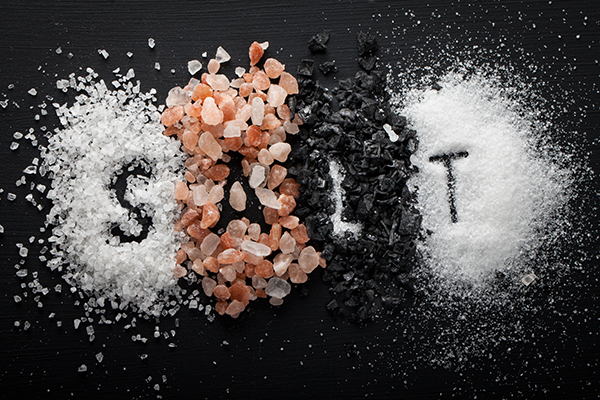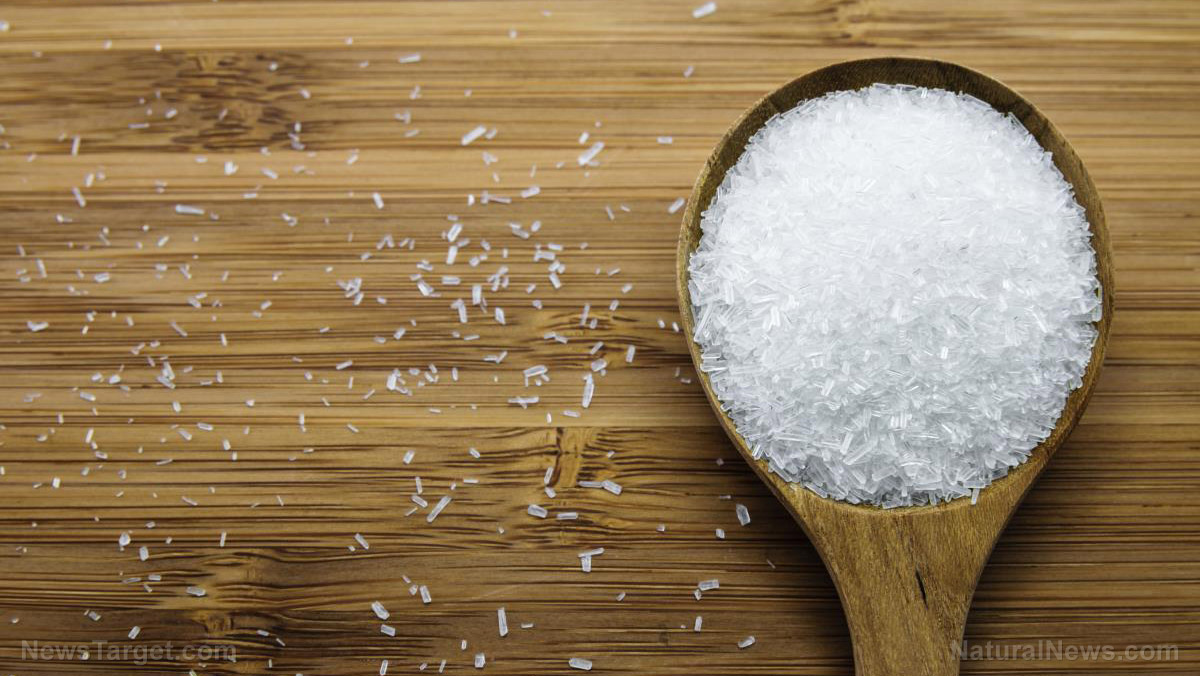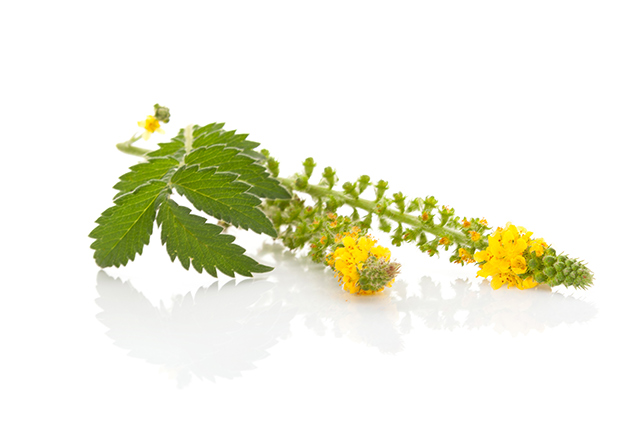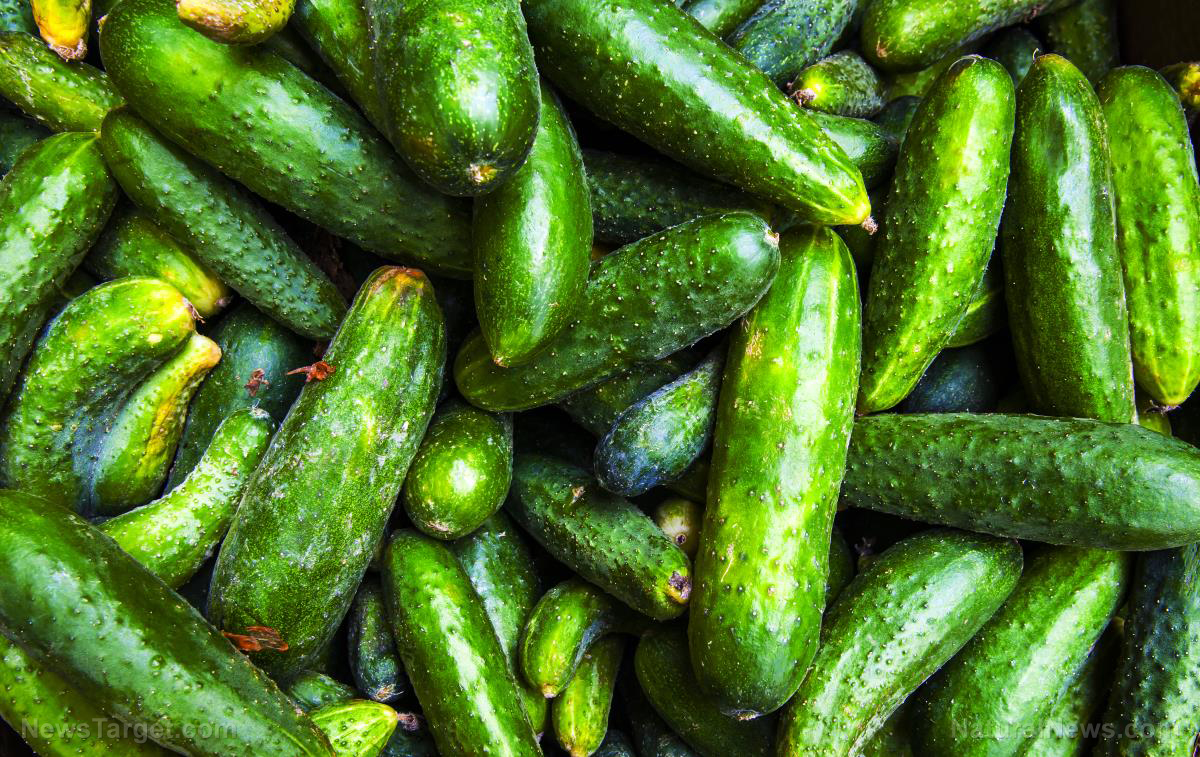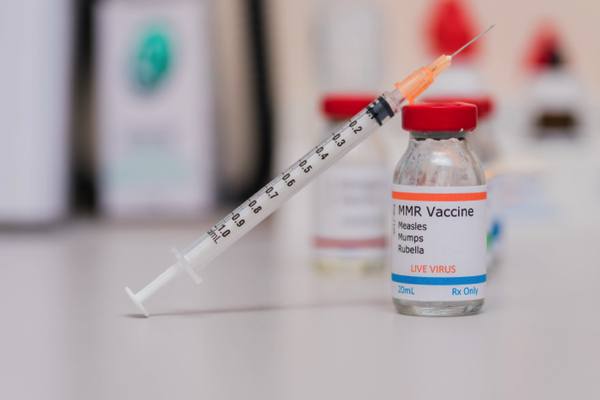Ancient “Mushroom of Immortality” outperforms drugs in Alzheimer’s prevention
05/20/2025 / By Lance D Johnson

While pharmaceutical giants pour billions into failed Alzheimer’s drugs, a 4,000-year-old medicinal mushroom is quietly proving itself as a powerful, multi-targeted defense against cognitive decline. Reishi mushroom (Ganoderma lucidum), revered in Traditional Chinese Medicine as the “elixir of immortality,” is now backed by modern science for its ability to combat Alzheimer’s disease (AD) through mechanisms that synthetic drugs can’t replicate.
Unlike single-target pharmaceuticals, which have repeatedly failed in clinical trials, reishi’s bioactive compounds — particularly polysaccharides and triterpenes — work synergistically to:
- Prevent toxic tau protein tangles (a hallmark of AD)
- Reduce amyloid-beta plaque formation
- Calm neuroinflammation by regulating overactive microglia
- Boost antioxidant defenses to protect brain cells
- Inhibit acetylcholinesterase (the same target as FDA-approved drugs like donepezil)
Key points on reishi-Alzheimer’s study:
- Reishi’s ganoderic acids (GAA, GAB) block tau hyperphosphorylation by inhibiting GSK-3?, a key enzyme driving Alzheimer’s progression.
- Human pilot studies show reishi spore powder combined with conventional meds improves cognitive scores and quality of life.
- The mushroom’s anti-inflammatory effects rival pharmaceuticals without the side effects — no liver toxicity or brain bleeds.
- Ancient texts weren’t wrong: Reishi’s neuroprotective effects are strongest when used preventatively, decades before symptoms appear.
How reishi outsmarts Big Pharma’s failures
The pharmaceutical industry’s obsession with targeting amyloid plaques has led to a 99.6% clinical trial failure rate for Alzheimer’s drugs. Meanwhile, reishi addresses the disease’s multiple pathological pathways simultaneously.
1. Tau tangles unraveled
Ganoderic acid B (GAB) suppresses glycogen synthase kinase-3? (GSK-3?), an enzyme that hyperphosphorylates tau proteins, turning them into the neurofibrillary tangles that strangle neurons. Lab studies confirm reishi extracts reduce tau phosphorylation at critical sites (S199, T231) linked to cognitive decline.
2. Plaque prevention
Reishi’s polysaccharides enhance autophagy — the brain’s “cleanup crew” — to clear amyloid-beta (A?) before it forms plaques. In mouse models, ganoderic acid A (GAA) boosted A? clearance by 40% via the Axl/Pak1 pathway, outperforming experimental drugs like aducanumab.
3. Neuroinflammation neutralized
Chronic brain inflammation fuels Alzheimer’s progression. Reishi’s triterpenes shift microglia from destructive M1 (pro-inflammatory) to protective M2 (anti-inflammatory) states. Human trials show reishi spore powder lowers inflammatory markers (IL-6, TNF-?) within weeks.
The emperor’s secret, now backed by science
For centuries, Chinese emperors consumed reishi to enhance longevity. Modern research validates this wisdom:
- A 6-week pilot study of AD patients taking reishi spore powder showed improved memory retention and mood stability.
- Combined with memantine (a standard AD drug), reishi doubled cognitive improvements compared to memantine alone.
- Unlike risky blood-brain barrier disruptors (e.g., aducanumab), reishi’s compounds naturally penetrate neural tissues without causing cerebral edema.
The catch: Start early
Reishi’s greatest strength — its preventive potential — is also its most underutilized. Just as statins are prescribed for heart disease before a heart attack, reishi works best when used midlife to halt silent neurodegeneration. By supporting mitochondrial function and reducing oxidative stress, it helps protect brain cells from age-related decline. Studies suggest that regular reishi intake may slow cognitive deterioration by modulating neuroinflammation and enhancing synaptic plasticity.
Who benefits most?
- Those with early mild cognitive impairment (MCI): Reishi’s neuroprotective compounds, like triterpenes and polysaccharides, may improve memory and focus by reducing amyloid-beta accumulation.
- APOE4 gene carriers (high Alzheimer’s risk): Reishi’s anti-inflammatory effects help counteract genetic susceptibility by lowering chronic brain inflammation.
- Anyone over 40 with chronic inflammation or insulin resistance: Reishi regulates blood sugar, reduces systemic inflammation, and supports vascular health — key factors in preventing cognitive decline.
For optimal results, consistent, long-term use is key. Starting reishi supplementation in midlife, before symptoms arise, maximizes its protective effects on brain health and longevity.
Beyond reishi: A holistic defense
While reishi is a powerhouse, defeating Alzheimer’s requires a multi-pronged approach:
Diet: Ketogenic or Mediterranean diets reduce A? production.
Detox: Heavy metals (aluminum, mercury) accelerate tau pathology.
Sleep: Deep sleep clears amyloid via the glymphatic system.
Big Pharma’s reductionist drugs keep failing because Alzheimer’s is a multi-system collapse. Reishi, with its 117+ bioactive compounds, offers a time-tested, science-backed solution that respects the brain’s complexity.
Sources include:
Submit a correction >>
Tagged Under:
acetylcholinesterase, Alzheimer's prevention, amyloid plaques, anti-inflammatory, antioxidants, brain health, cognitive decline, dementia, ganoderic acid, Ganoderma lucidum, herbal remedies, holistic health, memory loss, microglia, natural medicine, neurodegeneration, neuroprotection, reishi mushroom, research, tau protein, traditional Chinese medicine
This article may contain statements that reflect the opinion of the author







